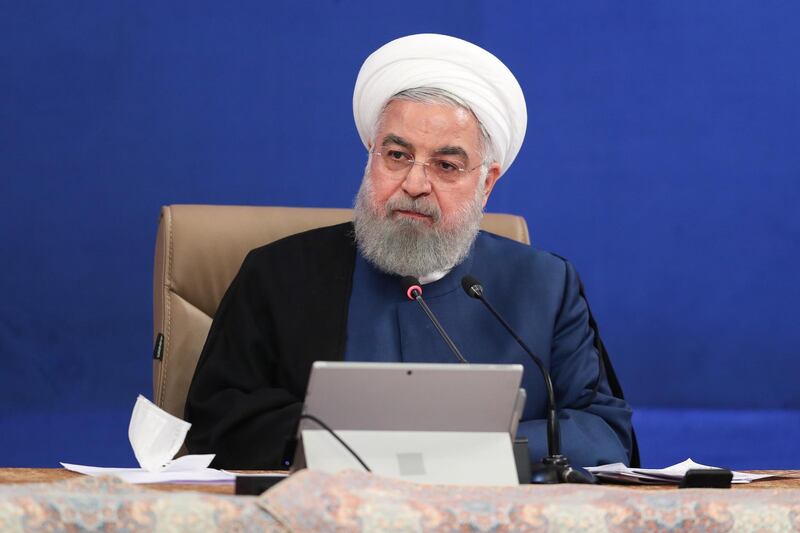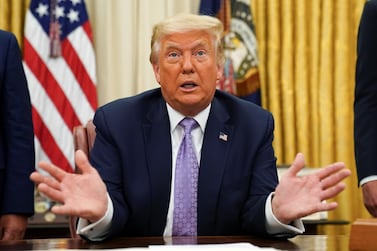The UAE summoned a senior diplomat from the Iranian embassy in Abu Dhabi on Sunday over "threats" made by its president after the peace accord between Israel and the Emirates was announced.
Iran's charge d'affaires was called to the Ministry of Foreign Affairs and International Co-operation in response to a speech by Iranian President Hassan Rouhani, who criticised "the sovereign decisions of the UAE".
The ministry said the speech was "unacceptable and inflammatory, and had serious implications for security and stability in the Gulf region".
Khalifa Al Marri, deputy minister of Foreign Affairs and International Co-operation for political affairs, gave the charge d'affaires a "strongly worded" protest in writing.
The protest was against the nature of the president's speech and "repeated threats from the Iranian Ministry of Foreign Affairs, the Revolutionary Guard and other Iranian officials", state news agency Wam reported.
The note warned of Iran's responsibility to protect the UAE mission in Tehran and its diplomats, in accordance with the Vienna Convention on Diplomatic Relations and after precedents of attacks on foreign diplomatic missions in Iran.
"The UAE affirmed its absolute rejection of the language of inflammatory speeches delivered by the Iranian authorities following the peace accord reached between the UAE, the US and the state of Israel," the ministry said.
It said it considered this an interference in its internal affairs and an attack on its sovereignty, which was completely unacceptable and went against international law.
"Furthermore, the UAE rejects Iranian statements that are not conducive to stability in the region, and considers that relations between states, agreements and accords are a sovereign issue."
Mr Rouhani's comments on Saturday followed the UAE's announcement on Thursday that it would establish diplomatic ties with Israel in exchange for the halting of all annexation of Palestinian territories.
The agreement, known as the Abraham Accord, came in a conference call between Sheikh Mohamed bin Zayed, Crown Prince of Abu Dhabi and Deputy Supreme Commander of the UAE Armed Forces, US President Donald Trump and Israeli Prime Minister Benjamin Netanyahu.
Brig Gen Mohammad Bagheri, the chief of staff of Iran's military, also issued warnings to the UAE over the accord, Bloomberg reported on Sunday.
The EU has welcomed the accord, calling the move "a fundamental step for the stabilisation of the region as a whole".
Fellow GCC members Bahrain and Oman have also endorsed the UAE's move and Egypt welcomed the accord.
It was hailed by UN Secretary General Antonio Guterres and the UN special co-ordinator for the Middle East peace process, Nikolay Mladenov, who said he hoped it would "create opportunities for Israeli and Palestinian re-engagement".
UK Prime Minister Boris Johnson said it was "hugely good news" with France also praising the deal for holding back Israeli annexation.
US Secretary of State Mike Pompeo said the Abraham Accord "is a remarkable achievement for two of the world's most forward-leaning, technologically advanced states, and reflects their shared regional vision of an economically integrated region".







